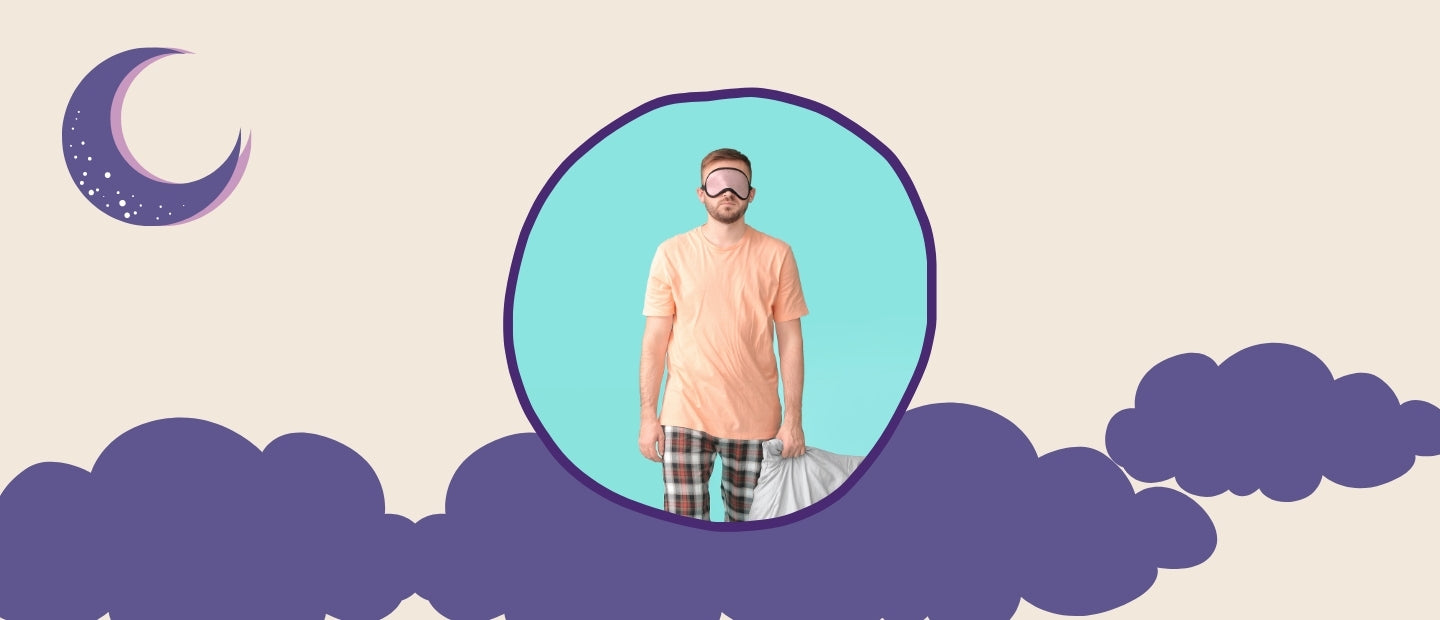Sleepwalking in 5 questions
Did you ever sleepwalk? If so, maybe you are one of those people who had the chance to tidy their apartment or house during the night, had snacks without even knowing it, or went to check multiple times that their car was locked while "dreaming".
Videos on the subject are legion on the internet.
But what is sleepwalking? And what causes it? Are people born sleepwalkers or do they become them? And should you wake a sleepwalker or not?
In this article, I'm going to reveal everything you may have wondered about this sleep disorder, in 5 questions.
Sleepwalking: 5 Questions About This Very Particular Sleep Disorder

-
What Is Sleepwalking?
Sleepwalking is a sleep disorder.
No, it is not a magical power that allows you to tidy your apartment while you sleep. What could be better than waking up to a clean apartment after a day of partying?
Sleepwalking is considered to be a state between sleep and wakefulness. Sleepwalkers perform actions without being aware of them. And this happens in the deep sleep phase.
Even though the term sleepwalker refers to a person who walks while being asleep, not all sleepwalkers move around. They may also stay in their bed and have night terrors, scream, struggle, imagine being in combat with Muhammad Ali (one can understand the threat to the spouse in these circumstances), etc.
-
Are We Born Sleepwalkers or Do We Become Sleepwalkers?
Both my captain!
For more than 50% of sleepwalkers, mom or dad are sleepwalkers too. Genetics would thus intervene in the equation.
Also know that, in general, children will be more affected than adults.
-
What Causes Sleepwalking?
Anything that can disturb our sleep would accentuate the occurrence of this phenomenon:
-
Depression,
-
Stress,
-
Headaches
-
Ingestion of sugars, alcohol, drugs
-
Etc.
Other sleep disorders also contribute to sleepwalking because they break up our sleep. Sleepwalking is more easily manifested during these transitions in our sleep cycle.
-
Can One Die From Sleepwalking?
No, not directly.
In itself, sleepwalking is not dangerous to health, organically speaking.
It is the actions performed during this semi-awake/semi-asleep state that prove to be dangerous, as can often be seen in the "miscellaneous" category of some newspapers.
More generally, being a sleep disorder, the consequences of sleepwalking are those induced by disturbed sleep:
-
Great tiredness, with falling asleep during the day.
-
Bad mood.
-
Depression, by lack of regeneration of the nervous system.
-
Etc.
-
Should You Wake a Sleepwalker?
Contrary to the popular belief, nothing bad will happen if you wake a sleepwalker. As nothing can happen to the person waking the sleepwalker. Try simply to avoid waking a sleepwalker too abruptly to limit confusion and thus increase his/her stress level.
It is a bit like when someone wakes you up when you are in a deep sleep. We don't really know where we are anymore. We are disoriented. So, it's just nice to spare sleepwalkers this unnecessary stress.
The best you could do when a relative is sleepwalking is to guide him/her to his/her bed, in a soft way. With quiet gestures and soft words.
What You Need to Remember :
-
Sleepwalking is a sleep disorder whose origin is mostly genetic.
-
Sleep disorders, as well as poor lifestyle habits, can accentuate its occurrence.
-
The risk for a sleepwalker lies in the actions taken during this semi-awake/semi-asleep state (falling, driving a car, etc.).
-
Waking a sleepwalker is not dangerous.










